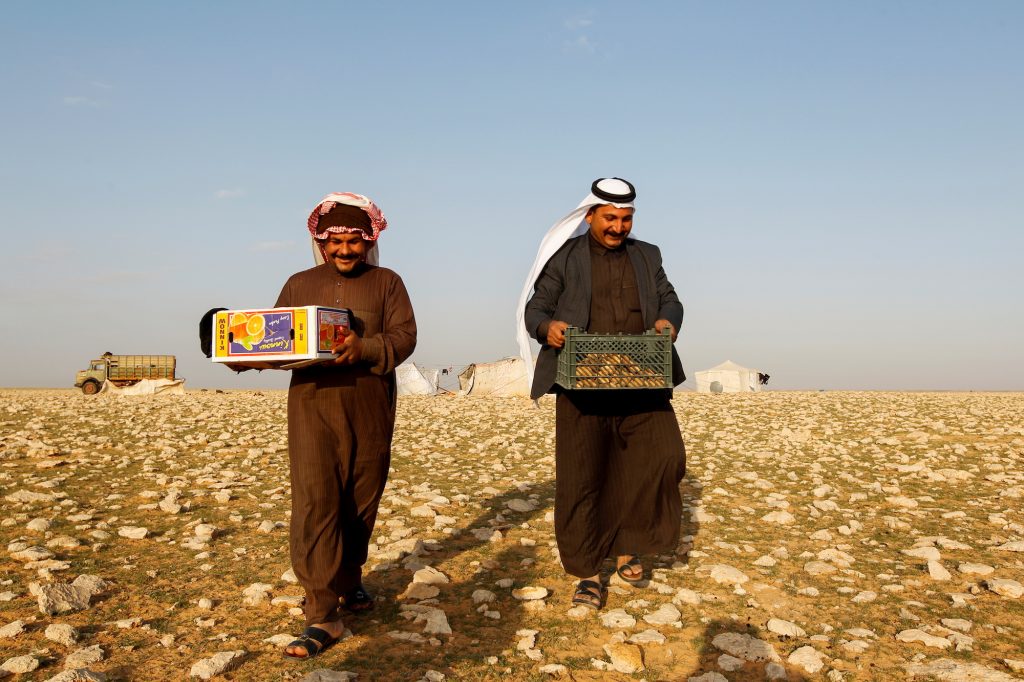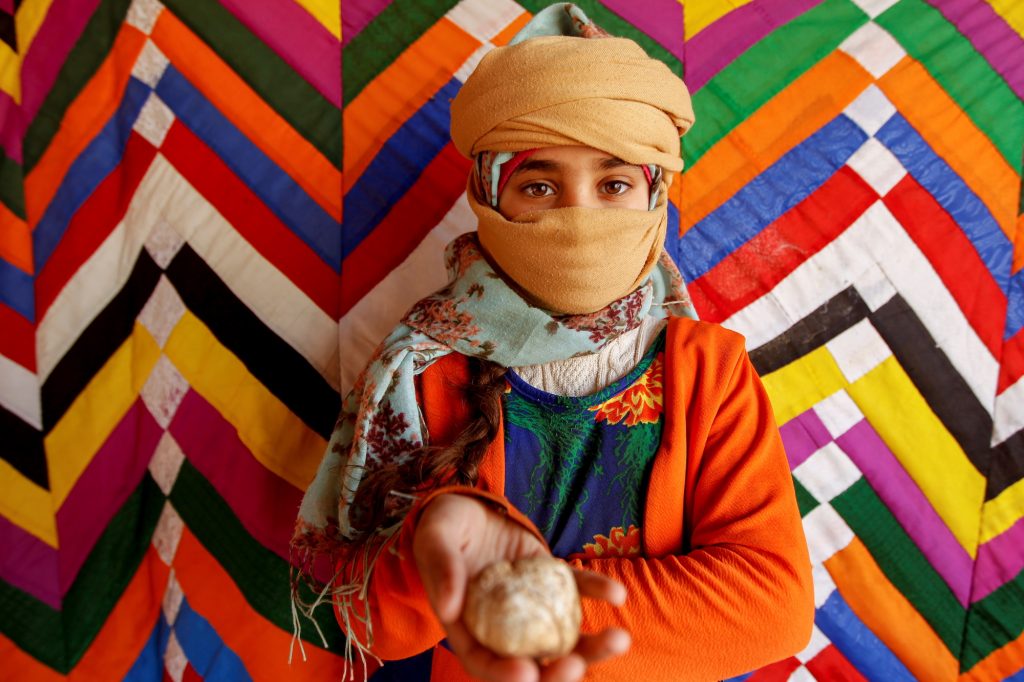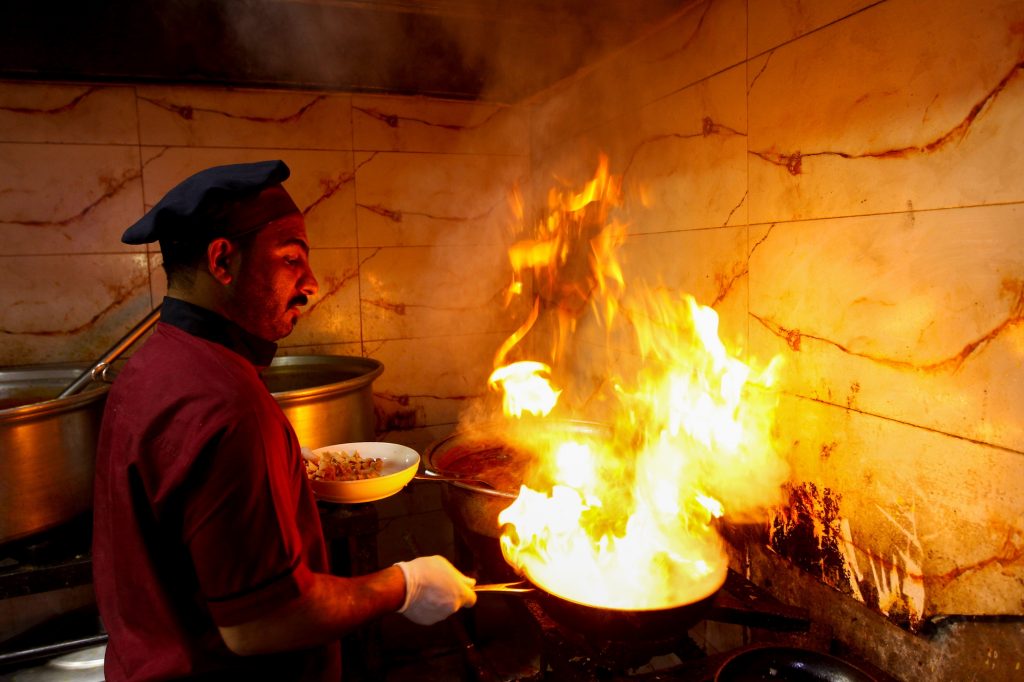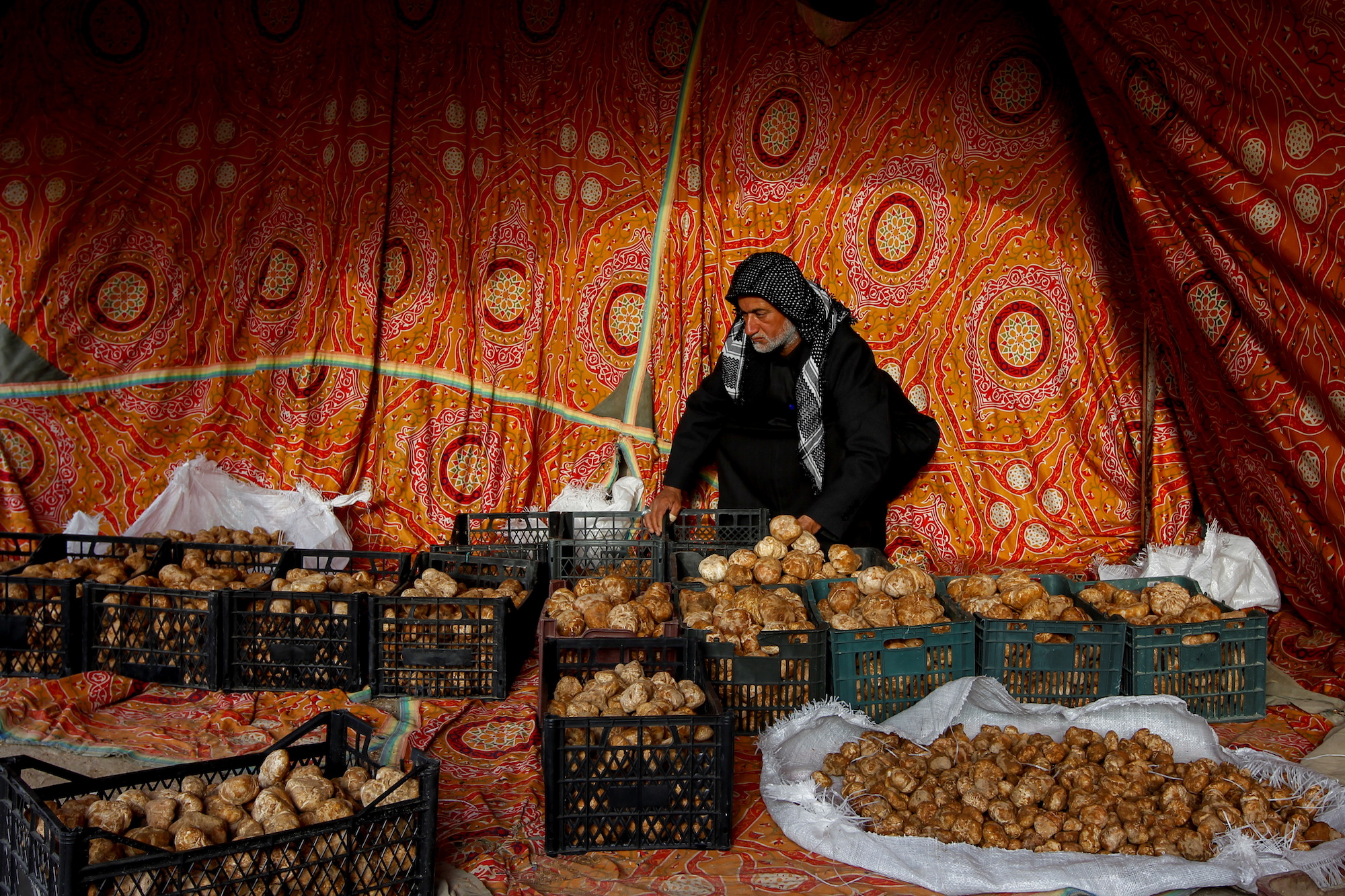By Ahmed Saeed and Alaa al-Marjani
SAMAWAH DESERT, Iraq (Reuters) – “Here it is, the truffle, a blessing from God!” Zahra Buheir carefully digs out a desert truffle from the sandy earth and shows it off between her callused fingers.
“Rain came, and then thunder, bringing truffles up to the surface,” the 72-year-old said.
Braving the harsh weather of Iraq’s southern desert, as well as left-behind land mines, Buheir and her family of seven have spent weeks hunting for the seasonal truffles that have provided them with an income for generations.
Fetching its hunters up to seven dollars a kilo this year, Iraq’s desert truffle is cheaper than its rarer European cousins that can cost hundreds of dollars or more a kilo.
But with Iraq’s economy in crisis, the local variety are a big help to Buheir and her family. This year the rain came late and Buheir could only find about a kilo of truffles a day, one tenth of what she would dig up in a good year.
Turning over stones and poking the earth with her bare hands, Buheir’s granddaughter, five-year-old Riyam, accompanied her parents to learn a trade and the desert lifestyle.
“When there is no work, truffles are a source of income. And we are happy here,” said Riyam’s father Mohsen Farhan, who cherishes the weeks he spends with his family in their tent in the desert.



Learning to hunt for products today also involves understanding the desert’s dangers. “We are afraid of wolves, there are a lot here. And there are mines. A while ago, someone died,” Farhan said. Remnants from the Gulf War in 1991, unexploded devices beneath the earth could be mistaken for truffles by the inexperienced eye.
Every few days, Hussein Abu Ali, drives into the desert from the city of Samawah to take the truffles to market.
There, Ali Tajj al-Din sells them at auction, each with a different name according to size. “These are walnuts, eggs, oranges, and here is the pomegranate, the biggest one,” he said.
This year, scarcity has pushed up prices and truffles that don’t sell locally are exported to wealthier Gulf countries.
But customers at Samawah’s “Beit al-Hatab” restaurant relish its weekly truffle speciality. “We fry or grill them, but the favorite dish is truffles on rice,” said restaurant owner Fawwaz Hatab.
(Writing by Charlotte Bruneau; Editing by Giles Elgood)
Subscribe to our weekly newsletter to receive all the tools and solutions entrepreneurs need to stay updated on the latest news in the industry





